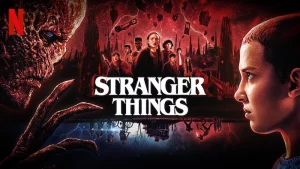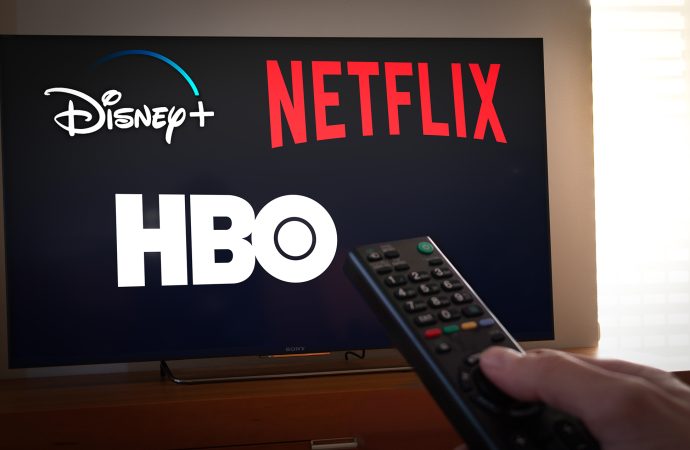Introduction In the last decade, the entertainment industry has undergone a seismic shift, largely driven by the advent and rapid evolution of streaming platforms. These digital services have not only transformed how audiences consume media but have also fundamentally altered the landscape of Hollywood itself. This article delves into the multifaceted impact of streaming platforms
Introduction
In the last decade, the entertainment industry has undergone a seismic shift, largely driven by the advent and rapid evolution of streaming platforms. These digital services have not only transformed how audiences consume media but have also fundamentally altered the landscape of Hollywood itself. This article delves into the multifaceted impact of streaming platforms on Hollywood, examining the changes in content creation, distribution, industry economics, and audience engagement.
The Evolution of Streaming Platforms

Image by: Yandex.com
Streaming platforms have their roots in the early 2000s, but it wasn’t until the mid-2010s that they began to dominate the entertainment industry. Netflix, which started as a DVD rental service, pivoted to streaming in 2007 and quickly became a household name. Following Netflix’s success, other major players like Amazon Prime Video, Hulu, and Disney+ entered the fray, each bringing unique content and strategies to the table.
Content Creation and Original Programming
One of the most significant changes brought about by streaming platforms is the shift in content creation. Traditional Hollywood studios have long adhered to a model that emphasizes blockbuster films and high-budget television series. However, streaming platforms have democratized content creation, giving rise to a new era of original programming.
Netflix’s “House of Cards” and “Stranger Things,” Amazon’s “The Marvelous Mrs. Maisel,” and Hulu’s “The Handmaid’s Tale” are prime examples of original series that have garnered critical acclaim and massive viewership. These platforms have provided opportunities for diverse voices and unconventional storytelling that might not have found a place in traditional Hollywood.
Distribution Revolution

Image by: Yandex.com
The traditional distribution model in Hollywood involved a complex web of theatrical releases, television syndication, and physical media sales. Streaming platforms have upended this model by offering content directly to consumers. This direct-to-consumer approach has several advantages:
- Global Reach: Streaming platforms can release content simultaneously worldwide, eliminating the staggered release schedules that were common in the past.
- Convenience: Audiences can access content on-demand, without the need to adhere to broadcast schedules or visit physical stores.
- Data-Driven Decisions: Streaming platforms leverage user data to make informed decisions about content acquisition and production, tailoring their offerings to audience preferences.
Economic Impact on Hollywood

Image by: Yandex.com
The rise of streaming platforms has had profound economic implications for Hollywood. Traditional box office revenues have faced stiff competition from streaming services, leading to a re evaluation of financial models. Some key economic impacts include:
- Subscription Revenue: Streaming platforms operate on a subscription-based model, providing a steady revenue stream that is less dependent on the success of individual projects.
- Talent Deals: High-profile actors, directors, and producers are increasingly signing lucrative deals with streaming platforms, often involving multi-project commitments.
- Production Investment: Streaming platforms are investing heavily in content production, sometimes outspending traditional studios. This influx of capital has led to a surge in production activity and job creation within the industry.
Audience Engagement and Viewing Habits
Streaming platforms have also transformed how audiences engage with content. The binge-watching phenomenon, where viewers consume entire seasons of a show in one sitting, has become a hallmark of the streaming era. This shift in viewing habits has several implications:
- Narrative Structure: Writers and producers are experimenting with new narrative structures that cater to binge-watching, often incorporating cliffhangers and serialized storytelling.
- Viewer Choice: Audiences have more control over what, when, and how they watch, leading to a more personalized viewing experience.
- Community Building: Streaming platforms have fostered online communities and fan bases, with social media playing a significant role in promoting and discussing content.
Challenges and Future Outlook

Image by: Yandex.com
While streaming platforms have brought numerous benefits, they also face challenges. Content saturation, competition among platforms, and concerns over data privacy are some of the issues that need to be addressed. Additionally, the traditional Hollywood model is adapting to coexist with streaming services, leading to a hybrid landscape.
Looking ahead, the future of Hollywood will likely involve a continued interplay between traditional studios and streaming platforms. Innovations in technology, such as virtual reality and interactive content, could further reshape the industry. As streaming platforms continue to evolve, their impact on Hollywood will remain a dynamic and influential force.
Conclusion
In conclusion, the rise of streaming platforms has transformed Hollywood, reshaping production, distribution, and consumption patterns. These platforms have introduced new opportunities for content creation, diversified distribution channels, and altered audience viewing habits. As the industry continues to evolve, streaming platforms will play a central role in shaping the future of entertainment, driving innovation and influencing global media landscapes.
The rise of streaming platforms has undeniably changed Hollywood in profound ways. From content creation and distribution to economic models and audience engagement, the impact is far-reaching. As the industry continues to adapt and innovate, one thing is certain: streaming platforms are here to stay, and their influence on Hollywood will only grow stronger in the years to come.
















